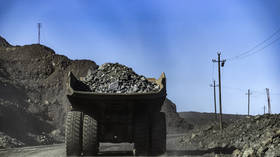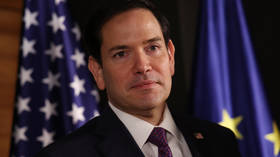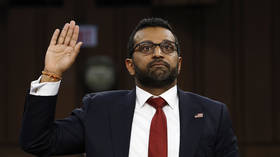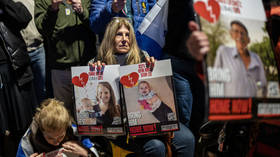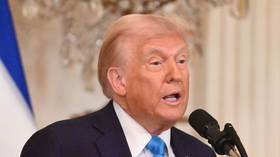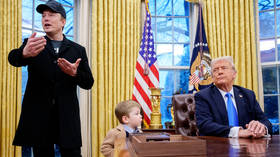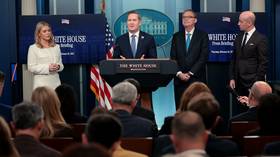Israeli bus station attack: IDF soldier killed, police mistakenly shoot dead foreigner
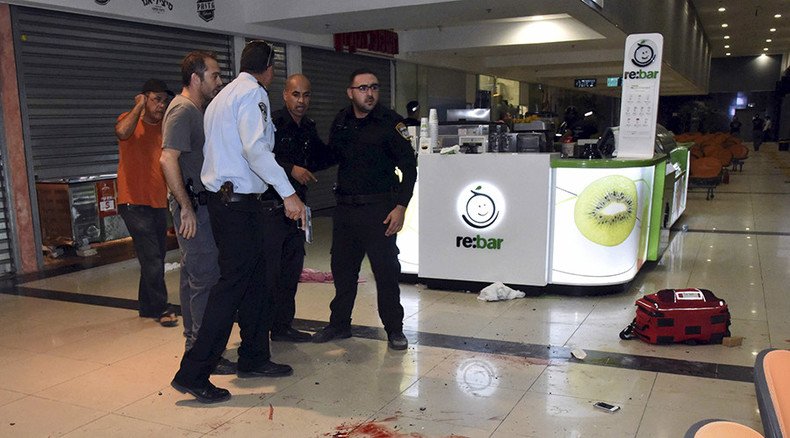
An IDF soldier was killed and 11 others were injured when an Arab attacker, armed with a gun and a knife, opened fire at a bus station in the city of Beersheba in the south of the country. An Eritrean man was mistaken for being an assailant and killed by police.
READ MORE: Escalating Israeli-Palestinian violence Live Updates
The perpetrator made his way into the station and started shooting and stabbing people inside, in what is one of the most violent attacks since the escalation began, the police said. An Israeli soldier was killed, four police officers were lightly injured and seven civilians received wounds of varying degrees in the attack.
Despite bringing a gun with him, the man also snatched the weapon from the soldier he gunned down, Yoram Halevy, a police commander in southern Israel, told journalists. The Arab attacker, whose identity was not immediately revealed, was shot and killed by the police, she added.
It was initially reported that the attacker had an accomplice, who was wounded and detained by the police. It later turned out that the Israeli security forces had shot dead a foreign national after mistaking him for the assailant.
Police responding to the attack, entered the bus station and saw a “foreign national.” They opened fire and wounding him, Halevy confirmed. The man later died in hospital.
The Jerusalem Post reported that the man was a citizen of Eritrea, who has been living in Israel.
An angry Israeli crowd, chanting “death to Arabs” gathered outside the bus station after the attack, Reuters reported.
The Sunday attack has become the most serious incident in the string of violence in Israel caused by tensions surrounding a Jerusalem holy site, the al-Aqsa mosque, which is sacred to both Muslims and Jews.
“The terrorists don't stop. This is a stepping up from knife attacks to shooting,” Eli Ben-Dahan, Deputy Defense Minister, said after the incident.
"I call again on the government to expel the families of terrorists. This is the only step that will deter them from carrying out the next terrorist attack," Ben-Dahan said, as cited by The Jerusalem Post.
'Palestinians teach kids to stab Jews at school' – Israel's new UN envoy http://t.co/dHpGJgwcIMpic.twitter.com/lRVAKomjWh
— RT (@RT_com) October 17, 2015Over the last two weeks, seven Israelis have died in knife attacks on streets or on buses carried out by the Palestinians. The death toll on the Palestinian side is 41 people, which includes the attackers and protesters shot dead by the Israeli security forces.
Arab workers ‘banned’ from schools in Tel Aviv
Meanwhile, Tel Aviv and the nearby cities of Rehovot and Hod Hasharon announced that all cleaners and maintenance workers would not be allowed into schools under a temporary ban. The jobs in question are mostly occupied by the Arab citizens.
“Owing to the sensitive situation, the municipality of Tel Aviv-Jaffa will not permit the entry of construction workers and laborers – Jews and Arabs alike – to educational institutions for on-going work,” Gali Avni-Orenstein, Tel Aviv spokeswoman, said in an emailed response to Reuters.
READ MORE: Israeli stabs another Jew by mistake, trying to avenge wave of Palestinian stabbings
A statement by Tel Aviv municipality also said that "after the end of the school day, contract workers may perform their work as usual.”
A similar ban was introduced by the city of Modiin-Maccabim-Reut, which opted to say “minority members” in its announcement – a term often used to describe Arabs in the Jewish state.
1.7 million Arabs, predominantly Muslim, represent around 21 percent of Israel’s 8-million population.
Israeli Interior Ministry urged “all mayors to continue to act with respect and equality towards all their workers, irrespective of religion, ethnicity or gender,” but didn’t instruct them to lift the ban.
The Ministry of Education said that it was not releasing any specific guidelines regarding non-educational staff in schools due to not being responsible for contracting those workers, Arutz Sheva website reported.
READ MORE: ‘Scum must be isolated’: Israeli kindergarten parent demands Arab girl’s expulsion in racist rant
The Joint List party, representing the Arab minority in Israel, has slammed the bans by the cities as “racist.”
Prominent Joint List MP, Dov Khenin, has addressed the Knesset Interior Committee to hold an urgent hearing on the matter.
“As a result of the public anxiety, dangerous racist and exclusionary moves are being made that stain entire populations, violate basic rights and undermine the possibility of building a different future here,” Khenin said, as cited by Haaretz.
LISTEN MORE:



